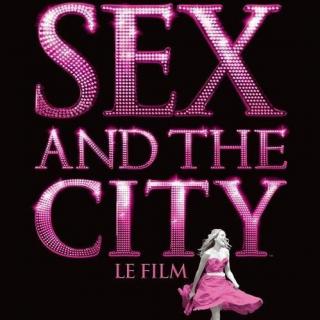
介绍:
Sex and the City
By Candace Bushnell
My Unsentimental Education:
Love in Manhattan? I Don't Think So . . .
Here's a Valentine's Day tale. Prepare yourself.
An English journalist came to New York. She was attractive and witty, and
right away she hooked up with one of New York's typically eligible bachelors.
Tim was forty-two, an investment banker who made about $5 million a year.
For two weeks, they kissed, held hands—and then on a warm fall day he drove
her to the house he was building in the Hamptons. They looked at the plans
with the architect. "I wanted to tell the architect to fill in the railings on the
second floor, so the children wouldn't fall through," said the journalist. "I
expected Tim was going to ask me to marry him.'' On Sunday night, Tim
dropped her off at her apartment and reminded her that they had dinner plans
for Tuesday. On Tuesday, he called and said he'd have to take a rain check.
When she hadn't heard from him after two weeks, she called and told him,
"That's an awfully long rain check." He said he would call her later in the week.
He never did call, of course. But what interested me was that she couldn't
understand what had happened. In England,
she explained, meeting the architect would have meant something. Then I
realized, Of course: She's from London. No one's told her about the End of
Love in Manhattan. Then I thought: She'll learn.
Welcome to the Age of Un-Innocence. The glittering lights of Manhattan
that served as backdrops for Edith Wharton's bodice-heaving trysts are still
glowing—but the stage is empty. No one has breakfast at Tiffany's, and no
one has affairs to remember—instead, we have breakfast at seven A.M. and
affairs we try to forget as quickly as possible. How did we get into this mess?
Truman Capote understood our nineties dilemma—the dilemma of Love
vs. the Deal—all too well. In Breakfast at Tiffany's, Holly Golightly and Paul
Varjak were faced with restrictions—he was a kept man, she was a kept
woman— but in the end they surmounted them and chose love over money.
That doesn't happen much in Manhattan these days. We are all kept men and
women—by our jobs, by our apartments, and then some of us by the pecking
order at Mortimers and the Royalton, by Hamptons beachfront, by front-row
Garden tickets—and we like it that way. Self-protection and closing the deal
are paramount. Cupid has flown the co-op.
When was the last time you heard someone say, "I love you!" without
tagging on the inevitable (if unspoken) "as a friend." When was the last time
you saw two people gazing into each other's eyes without thinking, Yeah,
right? When was the last time you heard someone announce, "I am truly,
madly in love," without thinking, Just wait until Monday morning? And what
turned out to be the hot non-Tim Allen Christmas movie? Disclosure—for
which ten or fifteen million moviegoers went to see unwanted, unaffectionate
sex between corporate erotomaniacs—hardly the stuff we like to think about
when we think about love but very much the stuff of the modern Manhattan
relationship.
There's still plenty of sex in Manhattan but the kind of sex that results in
friendship and business deals, not romance. These days, everyone has friends
and colleagues; no one really has lovers—even if they have slept together.
Back to the English journalist: After six months, some more
"relationships," and a brief affair with a man who used to call her from out of
town to tell her that he'd be calling her when he got back into town (and never
did), she got smart. "Relationships in New York are about detachment," she
said. "But how do you get attached when you decide you want to?"
Honey, you leave town.
大家还在听

